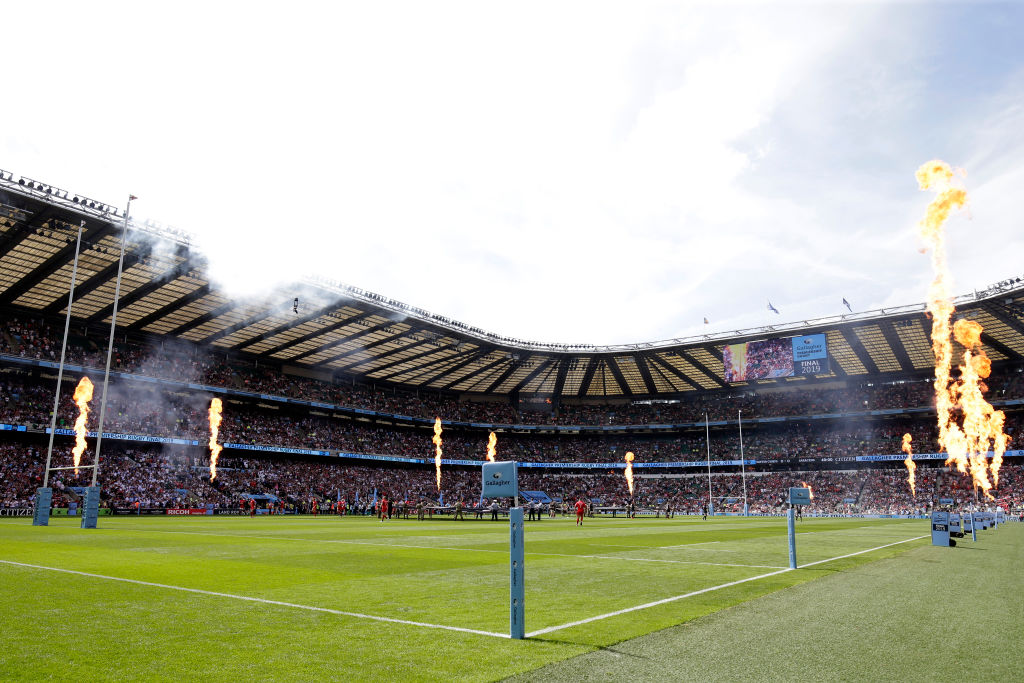Premiership could bring down £7m salary cap limit to help clubs

LONDON, ENGLAND - JUNE 01: General view inside the stadium prior to the Gallagher Premiership Rugby Final between Exeter Chiefs and Saracens at Twickenham Stadium on June 01, 2019 in London, United Kingdom. (Photo by Henry Browne/Getty Images)
There is a growing belief within the Premiership that the salary cap will have to be reduced in order to help club finances.
The board of Premiership Rugby voted unanimously to increase the salary cap limit from £6.5m to £7m for the start of the 2017-18 season. But the void rugby finds itself in due to the ongoing health crisis has left clubs scrambling to ensure their sustainability.
Earlier this week Saracens joined other Premiership clubs in furloughing some members of staff, while also going beyond the 25 per cent wage cuts imposed by most teams to ask top-earners to defer a large percentage of their wages.
England captain Owen Farrell is understood to have been asked to offset 90 per cent of his wages – around £300,000 – to be paid over 18 months once rugby fixtures are able to be played again.
As well as being a large sum of money to find while revenue streams are blocked, the announcement that Saracens will be deferring wages also impacts Premiership Rugby salary cap regulations.
The Premiership operates its salary cap between July 1-June 30, during which payments to players will tally towards the £7m threshold.
Chief executive Darren Childs has repeatedly stressed the league organisers intend to conclude the 2019-20 season by playing all remaining fixtures.
But with contracts fixed on expiring on June 30 and no rugby looking likely to be played until much later in the year, the rigidity of the salary cap appears likely to affect Premiership clubs in more ways than one.
“As much as you love rugby as a sport, you have to look at it as a business,” Gloucester chief executive Lance Bradley told the Daily Mail.
“In a business you wouldn’t have your outgoings £2m more than your incomings every year. We’re not in immediate danger, but lose £2m a year? If you look at how you’d address that – what’s the biggest cost? It’s player salaries.
“We don’t have any immediate plans (to reduce wages further) but in future we have to balance the books.
“It’s certainly going to put a halt on salaries continuing to inflate. You may find that it doesn’t need to be pushed because it’ll be driven by the clubs themselves, who are feeling the strain.”
Gloucester confirmed after announcing the re-signing of Jonny May from Leicester, that the England win would be joining them when his contract with the Tigers expires at the end of June.